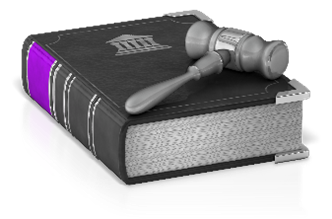
Workers’ Compensation Special Actions
Generally, the injured worker must file a claim with the Industrial Commission within one year of the accident or, if the injury does not appear at the time of the accident, within one year of its presentation. As the claim proceeds, the insurer will issue notices of claim status. If there is a dispute about a notice, the worker can request a hearing before an Industrial Commission Administrative Law Judge (ALJ). The ALJ will take evidence, hear from the injured worker and other witnesses, and issue a decision called an “award.” An award is any formal written document the ALJ issues that determines a worker’s right to benefits. It may be titled “action,” “order,” or “award.Award—Workers’ Compensation: A decision by an Administrative Law Judge with the Industrial Commission of Arizona about a claim. Even if the claimant is denied a claim or benefit, the decision is referred to as an award.
Before appealing to the Court of Appeals, a party must file a timely Request for Review of the ALJ’s award. The request must be filed within 30 days after the date the ALJ’s decision was mailed to the parties (not the date it was received). If a timely Request for Review is filed, the same ALJ who issued the award will review the evidence and any written arguments submitted by the parties. The ALJ will issue a Decision Upon Review, which may affirm, reverse, rescind, modify, or supplement the award.
The Decision Upon Review becomes final unless within 30 days after it is mailed, one of the parties files a “
Special Action-Industrial Commission” petition for review with the Court of Appeals. The petition must identify the award to be reviewed and the date the ALJ issued it. A copy of the award and the Decision Upon Review should be attached to the petition. In addition, the petition should ask the Court of Appeals to issue a “
Writ of Review” directing the Industrial Commission to file a certified record of the proceedings (claims file and hearing file) with the Court.
The party filing the petition is the “Petitioner.” All other parties are “Respondents.” The caption of the petition must name each party to the award, including the Industrial Commission, and identify each of them as employee, employer, or insurance carrier. The Industrial Commission is always named as a Respondent. The caption must include the Industrial Commission’s claim number, the insurance carrier's claim number (if applicable) and the Court of Appeals case number (assigned when the petition is filed). The petitioner or the petitioner’s attorney must sign the petition.
Once the Court’s filing fee has been satisfied, the Court will issue the Writ of Review and the Petitioner must serve the Respondents with a copy of the petition. Mailing a copy of the petition to the Respondents’ last known address as shown in the Industrial Commission file is sufficient service. If a party is represented by counsel, the petition should be sent to counsel and not the party. Service on the Industrial Commission and the State Compensation Fund (if a party) must be made on their Chief Counsel. The Petitioner should not serve the petition before it has been filed and the Court has issued the Writ of Review.
Any party, other than the Petitioner, who intends to participate in the Court of Appeals must file a “Notice of Appearance” in the Court within 10 business days after the party is served with the petition. If a Respondent does not file and serve the notice, other parties need not send copies of any brief, motion, or other matters filed with the Court to that Respondent.
The Industrial Commission will send the entire record to the Court within 10 days after it receives the Writ of Review. These documents are not available to the public, but the parties or their counsel can access them by coming to the Court of Appeals Clerk’s Office and presenting identification. If the record does not contain all documents filed with the Industrial Commission, a party may file a motion asking the Court to supplement the record. A party cannot add new items to the record or ask the Court to consider documents or other matters that the ALJ did not consider.
An opening brief by the Petitioner will be due 60 days after the Industrial Commission files the record with the Court. The
Arizona Rules of Civil Appellate Procedure govern the briefing of the case and briefs must contain certain information, cite supporting documents in the record, and be in a specific format provided in
ARCAP 13,
ARCAP 14,
ARCAP 15. An answering brief will be due after the opening brief is filed. A reply brief is allowed, but not required. Briefs must be
served on all parties and include a signed
certificate of service naming the parties served, the date of service, and the method of service.
After briefing is complete or the case is submitted, it is considered “At Issue.” It will then be assigned to a panel of three judges and scheduled for conference with that panel. The Court will rule on any request for oral argument and if granted, will set the conference and oral argument on the same date.
the panel will issue a decision after the appeal is conferenced. There is no time limit for the panel to issue the decision, which can be in the form of a memorandum decision, an opinion, or an order.
Any party may file a motion for reconsideration within 15 days after the panel issues the decision or a petition for review in the Arizona Supreme Court within 30 days of the decision. If additional time is needed to file a petition for review, a motion must be filed in the Arizona Supreme Court.


